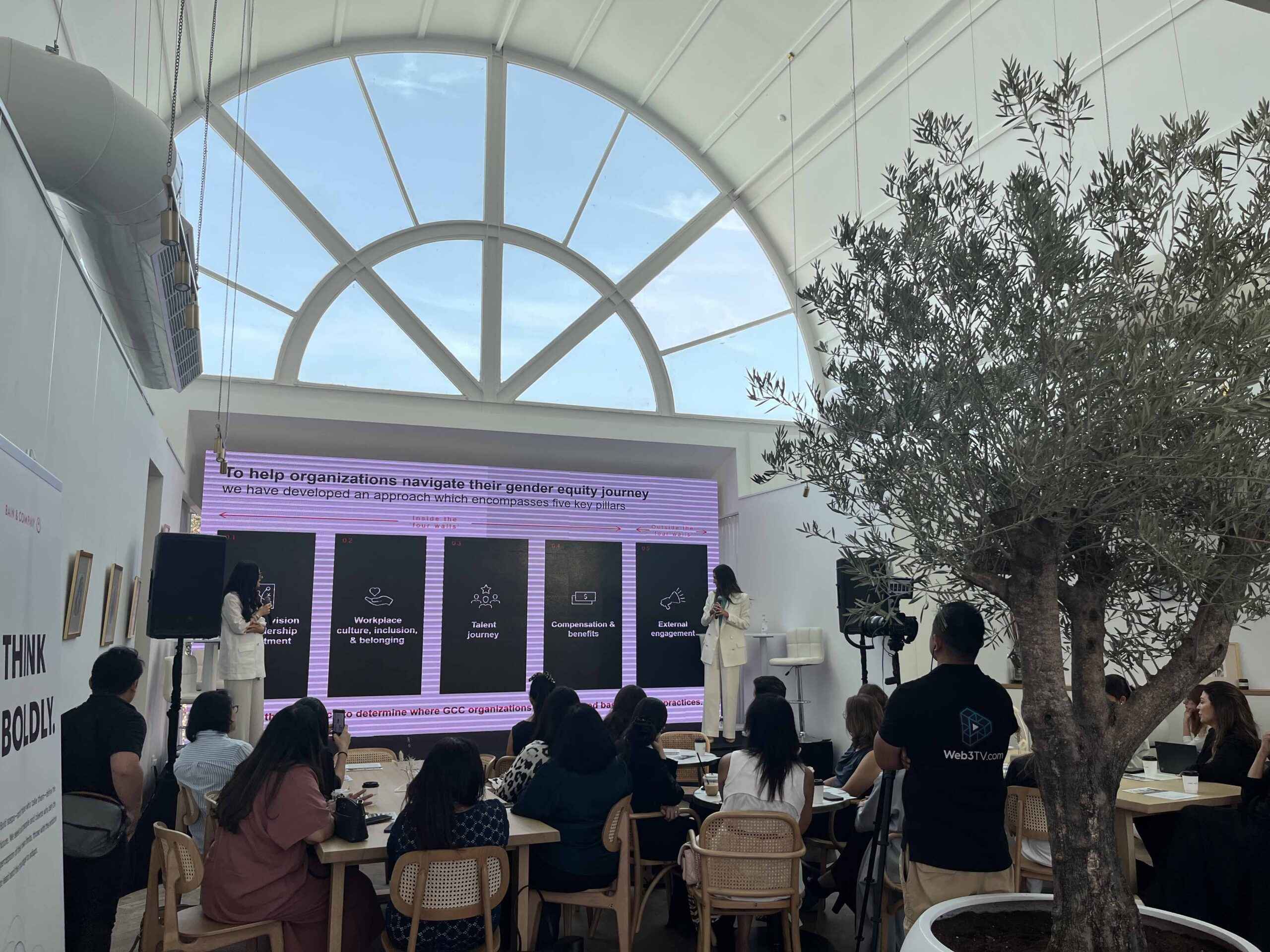
According to a recent survey in the GCC by Bain & Company, 70% of women surveyed highlighted that gender bias and stereotypes represent their biggest challenges to workplace advancement.
The research Advancing Gender Equity in the Middle East Workforce highlights the gaps and the achievements that have taken place within the workplace in the region.
“We felt the change in the region and wanted to bring that to the world but the more we heard the conversations, we found out that we still have a way to go,” said one of the researchers, Karen Khalaf, Middle East Women in Consulting at Bain (WAB) Lead at Bain & Company, at an event prior to launching the research.
The women said that alongside gender bias, there remains inadequate mentorship, training and support for work life balance which hinder women’s corporate leadership advancement in the region.
The researchers have developed five pillars to help organisations navigate through their gender equity journey, they are: holistic gender equity strategy, vision and leadership commitment; workplace culture, inclusion and belonging; talent journey; compensation and benefits; and lately external engagement with customers, suppliers, and governments among other stakeholders.
Through these practices they were able to identify three organisation models along different maturity stages of the gender equity journey. According to them Tier 1: Emerging Adopters which makes up 50% of the surveyed GCC organisations, Tier 2: Determined Learners which make up to 40% and Tier 3: Trailblazers which make up to 10%.
The Trailblazers, they describe, are the companies in the GCC- specifically within the UAE, Saudi Arabia and Qatar- that are incorporating a culture that reflects the local culture.
Some of the examples they shared are for organisations that set up coaching programs to help women become self confident in their roles. These organisations provide growth opportunities and have a clear equity strategy in place.
However, most of the organisations surveyed are within the other two categories. The Determined Learners are those that have set gender equity goals but do not yet have dedicated resources. Whilst the Emerging Adopters are those at the beginning of the journey.
“The government top down approach in the GCC is very effective,” added Anne-Laure Malauzat, Chief DEI Officer, Bain & Company to her audience who also worked on the survey.
“By taking a closer look at the underlying causes, our research- which included a survey of 1,150 professional men and women, diagnostics of 25 of the largest GCC organisations and interviews with 50 female leaders- indicates that gender stereotypes and biases persist,” wrote the researchers in the summary.
According to the researchers, organisations undergo a “tipping point” in their journey toward gender equity when women represent at least 30% of the total workforce especially when women are leaders within the organisation.
The results highlight that the challenges remain at the leadership level with the need to create an ecosystem that supports women across different aspects.